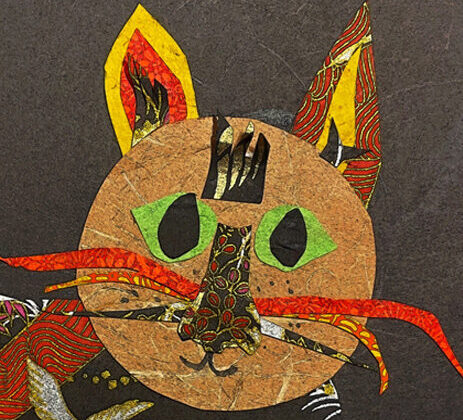Jo Balistreri
Going for the Brass
Our family moves from South Dakota to Wisconsin just before I enter seventh grade. Everyone has friends: I dread the first day of school, trudge up the brick path to St. Mary’s.
every footfall leaping grasshoppers
That afternoon the bandmaster comes to the 7th and 8th grades looking for members, says we don’t have to own an instrument, we can rent one for a nominal fee. I’ve never played anything but the piano and this sounds fun. I choose the clarinet. My parents pay a monthly rental fee, but I don’t practice. They send it back to the music store.
At school the next day, Sister Seraphim tells me, “You’re not getting out of the band that easy.” She shows me a trombone, and a tuba. Which one? Neither, I think, but choose the trombone, less bulky and lighter.
magnolia trees
their quiet opening
in a storm-dark sky
The trombone is long and awkward. It puts me in the brass section with the boys, the only girl. A couple of guys slide into seventh position, hit my leg and make snide remarks about the way I play. I am determined to register nothing on my face. I am also determined to play better than any of them.
By high school, my musicianship is good enough so I move up to Second Chair, still the only girl in my section. Though playing well is not the only reward. The boys think a girl trombonist is cool. Band practice is a mix of hormones and music.
summertime
that wild-honey moon
surging
About the Author

Jo Balistreri began her creative life as a pianist and harpsichordist. In 2005, she began writing free-verse poetry after losing her hearing and her ability to play music, and in 2015 registered for a mentoring program through the Haiku Society of America. She has since published widely and in 2019 was included in A New Resonance 12. http://maryjobalistreripoet.com/

Terrific read! The equivalent of a page turn in a novel, we have a rhythm of words and an addictive pace, that pulls us willingly along the highway of your haibun.
Really nice, Jo, that last paragraph in particular, especially the ending line of prose, and the final haiku. Plus the title fits so well.